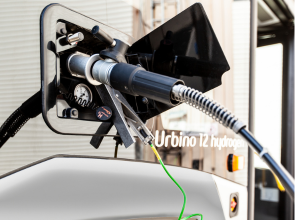Mercedes-Benz unveils plan for electric and fuel cell trucks at the Wörth site
The automaker plans to expand its electric and fuel cell trucks production at the Wörth plant in the future.

Mercedes-Benz plans to make its Wörth plant in Germany the centre for emission-free transport within its truck production network.
The company management and works council have agreed on the future plan for the site to produce battery-electric and fuel-cell trucks at the site as well as support the workforce skills for the site transformation.
Mercedes-Benz eActros will go into series production at the site in October 2021, followed by the eEconic next year, while the battery-electric eActros LongHaul for long-haul transport will follow from the middle of the decade. With the decision to produce the zero-emission trucks in Wörth, the company is securing the long-term capacity utilisation of the plant and stable employment at the site. The company aims the first series-produced trucks with hydrogen-powered fuel-cell drive could be handed over to customers starting in 2027.
The so-called fullflex concept makes it possible to integrate zero-emission trucks into existing production. In addition, the plant is currently preparing to significantly increase production capacity in line with the current positive order situation by switching from two-shift to three-shift operation before the end of this year.
Daimler Truck is consistently relying on two all-electric drive technologies: Battery and hydrogen-based fuel-cell. The decision about the location for trucks with alternative drive systems forms an important pillar of the plant’s new strategic orientation. The plan is determined in a works agreement with a term until the end of 2029, where the details for implementation will be finalised between management and the works council in the coming months.
Substantial funds will be required for the site transformation, including the conversion of production. Daimler Truck will invest substantially in the location in the coming years. The company has also submitted an application to the German government as part of the funding for hydrogen and fuel-cell technologies, including the conversion at the Wörth plant.
Meanwhile, the entire Wörth site, including production, is also planned to be CO2-neutral from 2022 onwards, similar to other European Daimler Truck plants. The company will source CO2 neutral energy and source electricity from wind, solar and hydroelectric power plants.
Sven Gräble, Head of Mercedes-Benz Trucks Operations, said, “We are bundling our technological know-how with fully flexible and thus even more efficient production, and all of this in a CO2-neutral, digitalised factory with corresponding logistics and infrastructure.”
At the German Powertrain sites, the Mercedes-Benz plants in Gaggenau, Mannheim and Kassel, the management and works council have already at an advanced stage of talks on the future orientation of the sites, where the agreement is expected soon.
